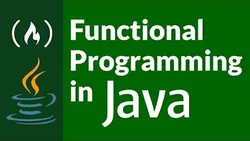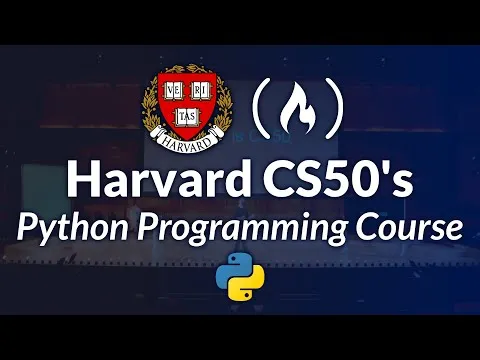
Functional Programming in Java - Full Course 
This comprehensive course provides an introduction to Functional Programming in Java, teaching the fundamentals of how to reduce and simplify code. Perfect for beginners, this tutorial will help you master the basics of Functional Programming. ▼
ADVERTISEMENT
Course Feature
![]() Cost:
Cost:
Free
![]() Provider:
Provider:
freeCodeCamp
![]() Certificate:
Certificate:
Paid Certification
![]() Language:
Language:
English
![]() Start Date:
Start Date:
On-Demand
Course Overview
❗The content presented here is sourced directly from freeCodeCamp platform. For comprehensive course details, including enrollment information, simply click on the 'Go to class' link on our website.
Updated in [March 06th, 2023]
This course provides an overview of Functional Programming in Java. It is designed for beginners and covers the fundamentals of the language. Students will learn how to reduce and simplify their code using functional programming techniques. Topics covered include lambda expressions, functional interfaces, method references, and the Stream API. By the end of the course, students will have a better understanding of how to use functional programming to improve their code.
[Applications]
After completing this course, students should be able to apply the concepts of functional programming in Java to their own projects. They should be able to use the functional programming techniques to reduce and simplify their code, as well as to create more efficient and maintainable code. Additionally, students should be able to use the functional programming techniques to create more robust and reliable applications. Finally, students should be able to use the functional programming techniques to create more efficient and maintainable code.
[Career Paths]
1. Java Developer: Java developers are responsible for developing and maintaining applications using the Java programming language. They must have a strong understanding of object-oriented programming principles and be able to write efficient, reusable code. With the increasing popularity of functional programming, Java developers must be able to understand and apply functional programming principles to their code.
2. Software Engineer: Software engineers are responsible for designing, developing, and testing software applications. They must have a strong understanding of programming principles and be able to write efficient, reusable code. With the increasing popularity of functional programming, software engineers must be able to understand and apply functional programming principles to their code.
3. Data Scientist: Data scientists are responsible for analyzing large amounts of data and extracting meaningful insights from it. They must have a strong understanding of programming principles and be able to write efficient, reusable code. With the increasing popularity of functional programming, data scientists must be able to understand and apply functional programming principles to their code.
4. Machine Learning Engineer: Machine learning engineers are responsible for developing and deploying machine learning models. They must have a strong understanding of programming principles and be able to write efficient, reusable code. With the increasing popularity of functional programming, machine learning engineers must be able to understand and apply functional programming principles to their code.
[Education Paths]
1. Bachelor of Science in Computer Science: This degree path provides students with a comprehensive understanding of computer science fundamentals, including programming languages, algorithms, data structures, operating systems, and software engineering. Students will also learn about the latest trends in computer science, such as artificial intelligence, machine learning, and cloud computing.
2. Master of Science in Software Engineering: This degree path focuses on the development of software applications and systems. Students will learn about software design, development, testing, and maintenance. They will also gain an understanding of the latest technologies and trends in software engineering, such as cloud computing, mobile development, and web development.
3. Bachelor of Science in Information Technology: This degree path provides students with a comprehensive understanding of information technology, including networking, security, database management, and web development. Students will also learn about the latest trends in information technology, such as cloud computing, big data, and artificial intelligence.
4. Master of Science in Artificial Intelligence: This degree path focuses on the development of artificial intelligence systems. Students will learn about machine learning, natural language processing, computer vision, and robotics. They will also gain an understanding of the latest trends in artificial intelligence, such as deep learning and reinforcement learning.
Course Provider

Provider freeCodeCamp's Stats at AZClass
Functional Programming in Java is an online course designed to teach learners the basics of functional programming in Java. This course covers topics such as the fundamentals of functional programming, how to write functional code in Java, and how to apply functional programming to real-world problems. Additionally, learners will learn how to use functional programming to reduce and simplify code and how to debug and optimize code. Suitable for both beginners and experienced programmers, this course provides a comprehensive overview of Java functional programming.
Discussion and Reviews
0.0 (Based on 0 reviews)
Explore Similar Online Courses

Build 15 JavaScript Projects - Vanilla JavaScript Course

Web Scraping with Python - Beautiful Soup Crash Course

RDBMS PostgreSQL

Intro To PostgreSQL Databases With PgAdmin For Beginners

PostgreSQL: Client Applications

Mastering SQL using Postgresql

Database Design and Basic SQL in PostgreSQL

PostgreSQL: Advanced Queries

Spatial SQL with Postgres : A language for geographers

Learn SQL Using PostgreSQL: From Zero to Hero

PostgreSQL Essential Training


Start your review of Functional Programming in Java - Full Course